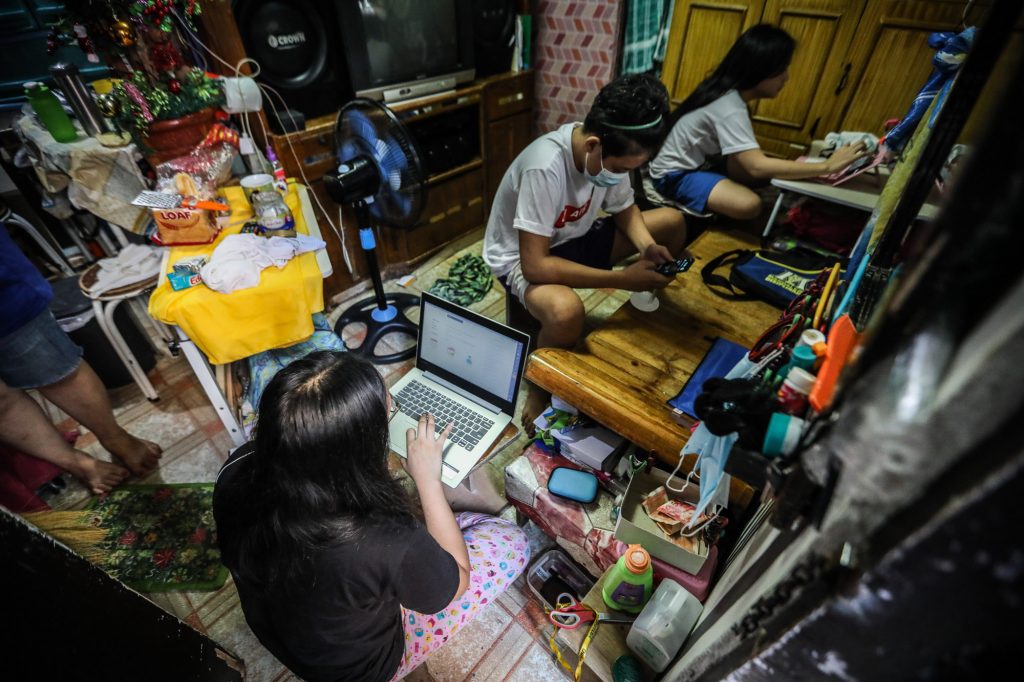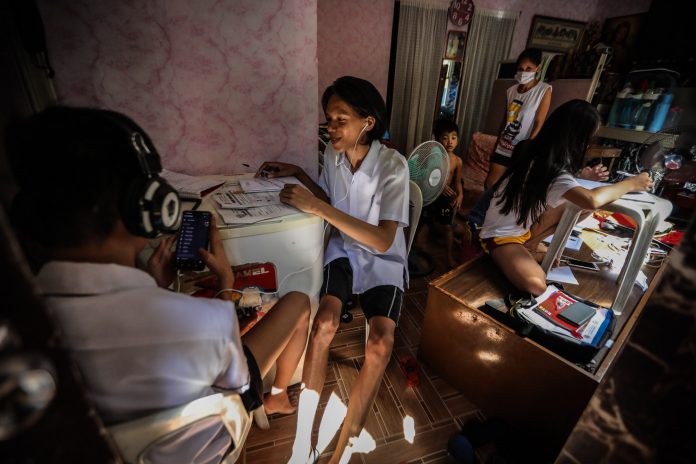The Episcopal Commission on Youth of the Catholic Bishops’ Conference of the Philippines expressed support for the reopening of classes in the country this week.
“In whatever circumstance, we should not postpone learning,” said Bishop Rex Andrew Alarcon of Daet, chairman of the commission, in a statement over Radio Veritas 846.
The prelate, however, recognized that the global health crisis has changed the situation.
“We may not keep everything in the same mode as the pre-pandemic time, but to learn, to resume, to continue the process of learning is something we must do,” he said.
The prelate said that during the current situation everyone, not only children, need to lear how to survive.
“To our teachers, parents, and students, our situation is difficult given the pandemic, but we take courage and do what’s in our capacity to resume learning,” said Bishop Alarcon.
He said “education is very important … and necessary because it’s training the mind, the heart, and the whole person.”
Teachers’ groups, meanwhile, called on the government to address their concerns, including the distribution of modules to students for online learning.
Due to the coronavirus pandemic, the Philippines implemented a “blended/distance” learning set-up for the second year.
Without face-to-face classes, students will learn their lessons using multiple learning delivery modalities such as modular (printed and offline); online learning; television and radio-based instruction; and/or a combination of two or more modalities under “blended learning.”
Teachers groups, however, said the system is not ready for the opening of classes with all the challenges experienced by teachers, parents and learners last school year.
President Rodrigo Duterte has so far rejected proposals for a pilot reopening of primary and secondary schools for fear children could catch COVID-19 and infect elderly relatives.
A “blended learning” program involving online classes, printed materials and lessons broadcast on television and social media was launched last October.
It has been plagued with problems: most students in the Philippines don’t have a computer or internet at home.

More than 80 percent of parents are worried their children “are learning less,” said Isy Faingold, UNICEF’s education chief in the Philippines, citing a recent survey.
Around two-thirds of them support the reopening of classrooms in areas where virus transmission is low.
“Distance learning cannot replace the in-person learning,” Faingold said.
“There was already a learning crisis before Covid… it’s going to be even worse.”
Fifteen-year-olds in the Philippines were at or near the bottom in reading, mathematics and science, according to OECD data.
Most students attend public schools where large class sizes, outdated teaching methods, lack of investment in basic infrastructure such as toilets, and poverty have been blamed for youngsters lagging behind.
School enrollments fell to 26.9 million in September 2020 and have dropped a further five million since, according to official figures.
Faingold fears many students may “never return.”
“We hope in the next days the enrolments continue to accelerate,” Faingold said.
Remote learning is also taking a toll on children’s mental health and development.
“Long-term social isolation is closely related to loneliness and physiological illness in children,” said Rhodora Concepcion of the Philippine Society for Child and Adolescent Psychiatry.
“With the disruption of face-to-face learning and social interaction, regression in formerly mastered skills may be observed in children.” – with a report from AFP









